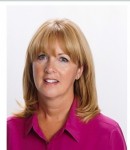London – The extent required to verify quality of photos and videos was clearly outlined in a detailed report issued by the BBC organization. A bit dated in terms of when the report first appeared, it still provides … read more
January 2015 Ethics News Update
Four-part series from PR Newswire covers important fact-checking basics
For editors seeking to improve fact-checking procedures, the PR Newswire for Journalists has posted a four-part series – Faster Fact Checking for Journalists, a compilation of online resources and best practices. … read more
ONA ethics code draft supports accuracy checks, cites cases where okay for source to preview article
Allowing a source to preview an article that includes quotes offered during a prior interview could be a more logical part of a B2B editor’s fact-checking process. … read more
How the ethical editor and writer can meet the minimal standard
In Part I of this series, we established that vetting all research we editors might publish ought to be required practice. The next step is “how.” What questions might we ask of the researchers and what answers might … read more
‘I come to praise fact-checking, not to bury it’
by Julia Homer About the author: Julia Homer was the editor of CFO Magazine for its 1985 launch and served at CFO Publishing until January 2012 when she left as executive vice president. While CFO was part of … read more
First step when creating fact-checking policy? Identify ‘red flags’: says API’s Jane Elizabeth
Gathering information from today’s numerous digital platforms requires journalists to work harder at evaluating the misinformation array that exists. … read more
Scott Libin on digital ethics: In absence of other guidelines accuracy remains paramount
“Accuracy, accuracy, accuracy” is a mantra we all have heard, whether we’re journalists or not. And whether we’re journalists or not is a focus of the Radio Television Digital Association (RTDNA). … read more
Too many editors and writers publish only what’s handed to them
Journalists publish many stories based on bad data, which in turn is often based on poor methodology. … read more



